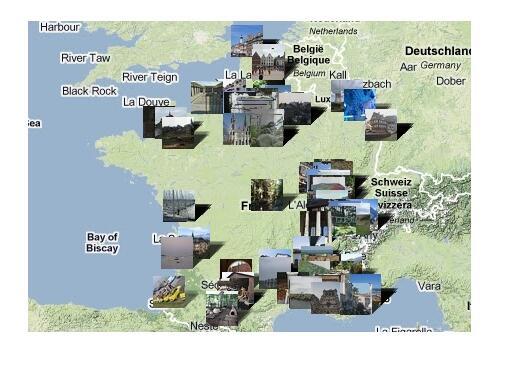French press review 20 August 2011
With stock markets tumbling worldwide, how worried should the French be? Will national unity help?
Issued on:

The front page of Aujourd'hui en France disquiets its readers this morning with the front-page head-line "Crisis - your bank, could it fail?"
On tumbling stock markets worldwide, bank shares have been hit especially hard, the paper notes. There are fears of a global recession. Many nations are deeply indebted. How worried should investors be?

The answer, on pages two and three, is partially reassuring. Last month, French banks passed the so-called stress tests. They are well capitalised and none are close to sinking, says Aujourd'hui. Could one of them go bankrupt ? Impossible, declares the former boss of Crédit Agricole.
That said, in the current fearful climate, what's needed is a strong lead from political leaders.
The views of ordinary men and women quizzed by the paper range from "not worried" through "a little worried" to "very afraid". Which only goes to show that economics continues to be an inexact science.
Le Figaro's top story is an appeal from Prime Minister François Fillon for national unity.
This, he is reported as saying, is the best response to stock market uncertainty and investors' fears. The appeal is directed primarily at political leaders, particularly his Socialist Party rivals. No one asks that they give up their convictions, Fillon says, but they should behave responsibly and in the national interest. No one, he tells Le Figaro, has the right to lie to the French people.
"Debt, debt, debt" is the headline on the paper's editorial page. The stock market nightmare, debt and the spectre of recession, is enough to sap the morale of even extreme optimists, the writer observes. In France the interest on state debt is equal to the revenue from income tax. Tackling the debt must be our obsession, he says.
Inside Le Figaro runs a lengthy feature on Brazil, which it calls a gentle giant. Rather different; it seems, from the doom and gloom in Europe.
Remarking on the country's recently discovered and massive oil wealth, the paper congratulates Brazil on having lessened social inequalities and confronting the issue of safeguarding Amazonia. In the past decade 50 million Brazilians moved from poverty into the middle class. Today, the paper notes, Brazil ranks fifth among world economies. A success story indeed.
One Paris paper we rarely mention is the International Herald Tribune. It's an English-language paper with a European twist that often sees things differently from the French press. This morning, for example, its top editorial warns that an insistence on austerity is threatening growth in both Europe and the United States.

More enlightened voices, it says, include Christine Lagarde, the new IMF chief and former French Minister, who is calling for short-term support for growth and jobs. Voters on both sides of the Atlantic need to demand more from their leaders than continued austerity on autopilot, the Trib says.
La Croix leads on its invitation to a dozen of the thousands of young people who have gathered in Spain for World Youth Day to write letters to family and friends. A photo of cheerful face accompanies each letter from the youngsters, whose home countries range from Gabon to Belize to Poland.
Their letters are almost uniformly positive, speaking of the friendly atmosphere, their bolstered Christian faith and how their eyes have been opened to the importance of respect and love for their nearest and dearest. No mention here of debt, debt, debt.
Le Monde, of course, hits the newsstands in the afternoon. But the copy in front of me is dated 20 August, so I think it warrants a mention.
The paper's lead is on pressure from the United States and Europe on embattled Syrian President Bashir al-Assad. For the first time, Le Monde reports, Washington, Paris, Berlin and London have demanded that Assad step down. First, however, they must win the support of the newly powerful emerging nations - the so-called Brics. And what happens if Assad does go is less than clear, says Le Monde.
Liberation devotes a lot of space to the Israeli writer David Grossmam, who lost a son during Israel's war in Lebanon. Grossman is critical of his country and Middle East attitudes in general. In this region, he says, everything pushes you not to think but to act instinctively. People have given up on words, on language, Grossman writes. They speak in clichés and slogans. War, he says, is not our destiny.
Closer to home. Nice Matin, the Côte d’Azur daily, often reports on the problem of pickpockets targeting unsuspecting tourists. Today the paper has a different, rather more upmarket twist on crime in France’s favourite playground.
A young Russian couple are accused of targeting high end stores in Cannes, notably Fendi, Yves Saint Laurent and Céline. Allegedly, at one shop video-surveillance tapes shows the man stuffing an expensive jacket into his bag. The snatch takes just 10 seconds.
The couple's total haul is estimated at 7,000 euros. The Russians deny the charges, saying they were drinking all week and were too drunk to remember anything.
Finally, after a miserable summer here so far, Nice Matin and other papers across southern and central France are warning of a heatwave. Sunday temperatures could reach 40°C.
Phew – what a scorcher! Now where did I put my sunscreen?
Daily newsletterReceive essential international news every morning
Subscribe